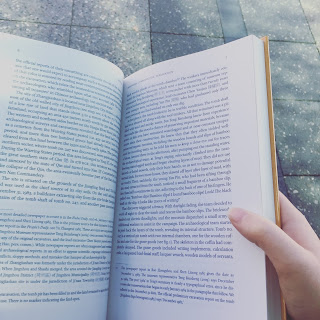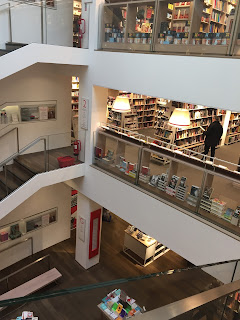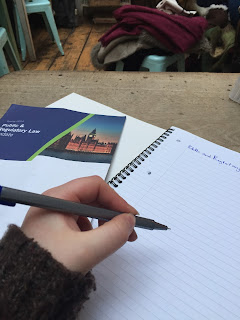One of the topics that have been coming up frequently in my conversations with others is speed reading. It’s a skill that you probably only think about when you have three days to complete an essay, and you haven’t started researching yet. However, speed reading is an important skill that can assist you in everyday life. It shouldn’t be disregarded as useless skills.
Those who want to pursue a career in law need to know that they will spend every day of their life reading.

Client’s files can be anything from one to forty volumes long – and it’s your job to read and study them all. Reading is also the best way to expand your vocabulary and improve your thinking capabilities.
Think of reading as upgrading technology. The more you do it, the better it gets. The less you do it, you eventually fall behind. Here are a few ways to improve your reading speed:
1. Read a lot
This is a basic essential. The more you read the faster you get. The less the read the slower you will become. Some scientific studies suggest that reading things on the screen of a computer is actually different to reading on paper. I’m not entirely convinced, but just to be certain you’re actually reaping the benefits of reading make sure you read both on and off screen. To improve your reading, think of it a little like sprinting. You have to run as fast as you can regardless of whether you can maintain the speed or not. When you are first beginning training yourself to speed read, don’t worry so much about comprehension. As your retrain your eyes to move along the page at a faster rate, you’ll begin to take more in.
2. Pick the operative words
 One fatal mistake when it comes to non-recreational reading is that we read all of it. It’s very rare that all of the text will be relevant to you. To improve your reading pace identify what it is you’re looking for. Then pick three or four words that will describe that thing.
From there you can run your eyes over the text. Every time you see a relevant word stop and read a few sentences surrounding the word. If it applies, congratulations. If it doesn’t apply, then keep skimming through.
This way you’ll be able to ascertain just how relevant the material is. If you don’t see any words that seem relevant then either rethink your operative words or move on to the next paper.
One fatal mistake when it comes to non-recreational reading is that we read all of it. It’s very rare that all of the text will be relevant to you. To improve your reading pace identify what it is you’re looking for. Then pick three or four words that will describe that thing.
From there you can run your eyes over the text. Every time you see a relevant word stop and read a few sentences surrounding the word. If it applies, congratulations. If it doesn’t apply, then keep skimming through.
This way you’ll be able to ascertain just how relevant the material is. If you don’t see any words that seem relevant then either rethink your operative words or move on to the next paper. 3. Read the first and last line
There’s a lot to be said for introductions and conclusions. Remember learning about topic sentences in high school? Well, this is why you use them. Academic literature uses these to highlight what they’re going to say. When you’re in a rush, don’t bother with the rest of the paragraph. Just focus on the first lines of every article. By the time you reach the end, you’ll have a general idea of what’s being said. Additionally, if you read the last line of every paragraph, you’ll have a concluding statement and a linking statement. The linking statement usually explains how the next section will connect to the first. This is important because it will show you the pace that the essay evolves at and any assumptions that you need to be aware of.
4. Don’t sound the words aloud in your head
When reading a lot of readers like to ‘speak’ the words in their head. This is a waste of time. Your brain is capable of comprehending the phrase without sounding it out. The more you read, the more you will be able to do this. But to begin with, help yourself to lose the habit by reciting random words in your head as you read. I began doing this by saying ‘aeiou’ over and over again while I was reading. To do this at first, it is best, to start with relatively simple reads. Try reading opinion articles or Buzzfeed pieces. They’re much easier to comprehend than academic literature and will build your confidence. You may be surprised at how much you can understand without having to focus too much on sounding out the words.
5. Dot point as you go
A critical issue with speed reading is that people are concerned they can’t read quickly and understand the text. A simple way to of getting around this is to write one word describing the paragraph. Skim read the article as fast as you can and then summarize it immediately. The use of summaries in one or two words helps to lessen the fear of not understanding. The human brain is far less reliant on the sound of the words than people think. When reading the shape of the letters is just as important.
6. When you don’t understand keep reading
 This may sound a little counter-intuitive. However, the biggest trap for slow readers is that they are hesitant to move on before they understand something. That will slow you down. Some points are poorly explained, and it will take multiple readings to understand. You need to know that if a point is badly explained it’s likely not essential to the argument and is irrelevant to your reading.
It may also be that you’ll come to understand it when you read something later in the document. Your best bet when trying to rush your way through a massive pile of information is just to keep reading. Stopping and rereading things will break the rhythm of the reading. That may also cause you to read slower.
This may sound a little counter-intuitive. However, the biggest trap for slow readers is that they are hesitant to move on before they understand something. That will slow you down. Some points are poorly explained, and it will take multiple readings to understand. You need to know that if a point is badly explained it’s likely not essential to the argument and is irrelevant to your reading.
It may also be that you’ll come to understand it when you read something later in the document. Your best bet when trying to rush your way through a massive pile of information is just to keep reading. Stopping and rereading things will break the rhythm of the reading. That may also cause you to read slower.



